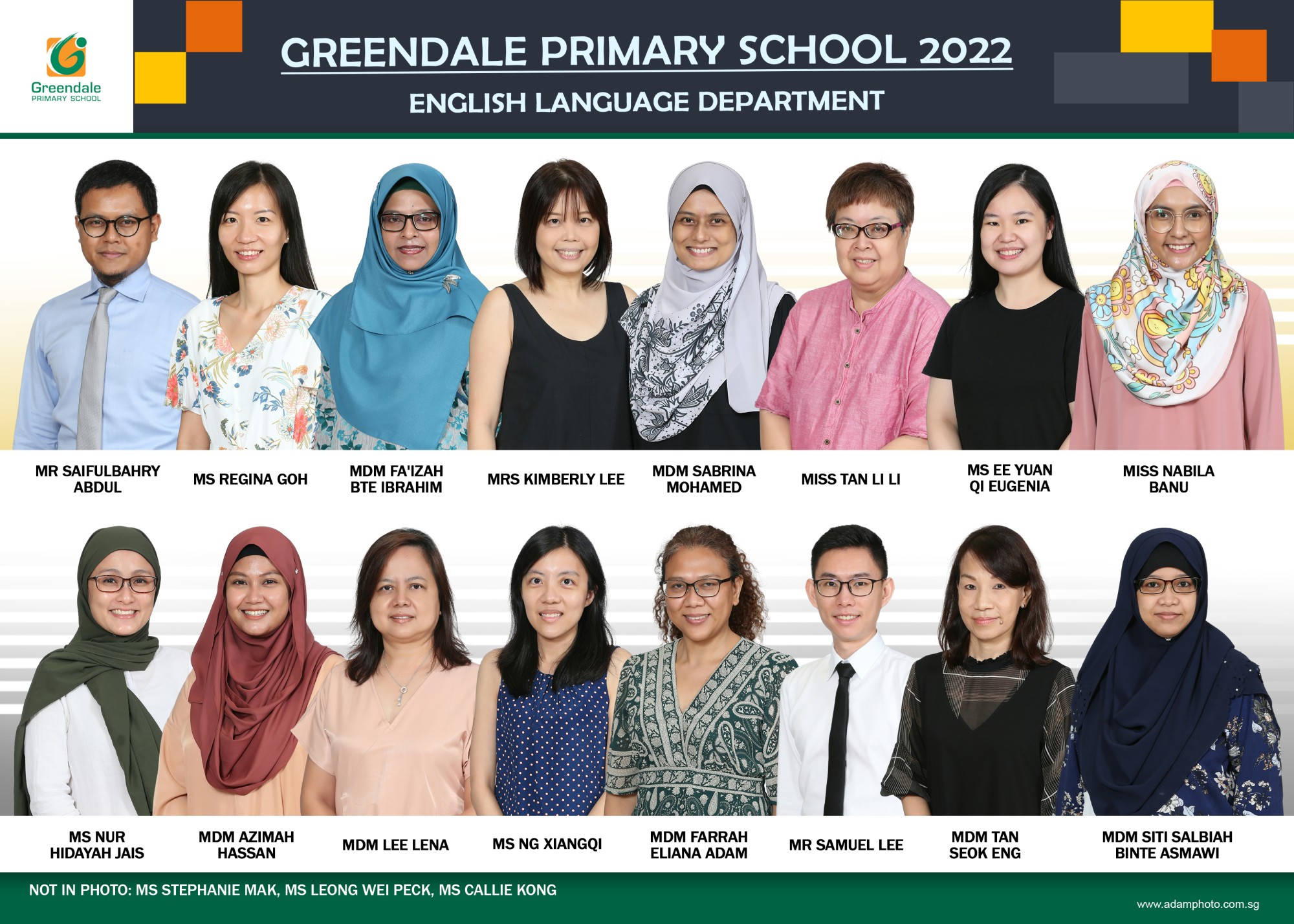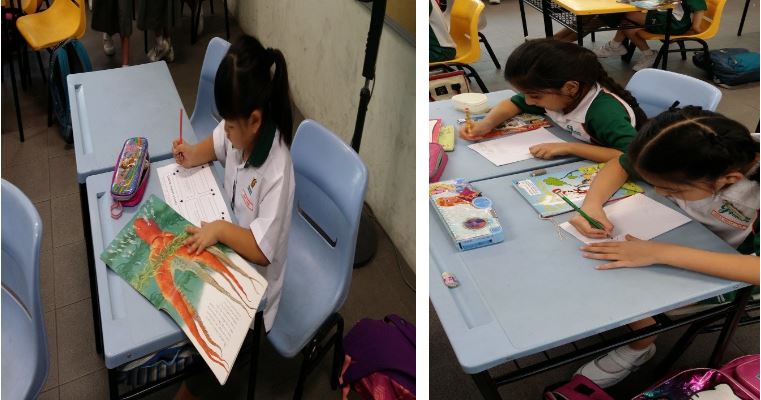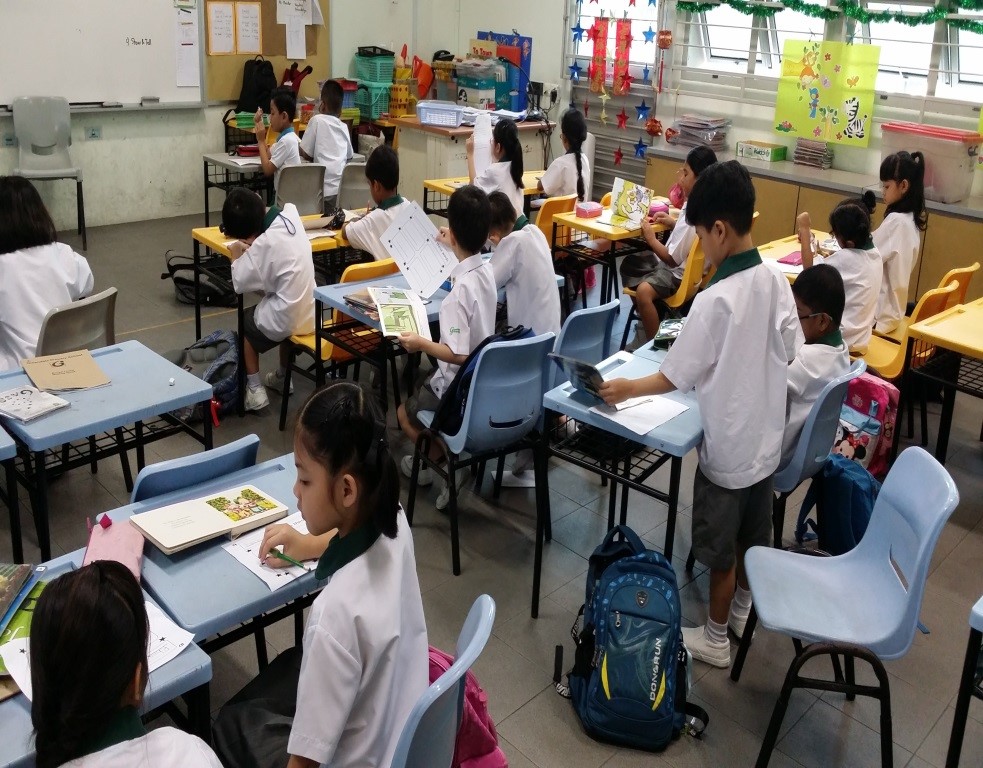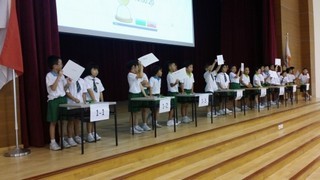English Language & Social Studies

English Language & Social Studies

The mission of the English Language and Social Studies Department is to build a strong foundation in the English Language, teach our students to apply their knowledge, skills and strategies in order to use the language to good effect and at an increasingly sophisticated level to demonstrate learning and mastery. We seek to develop empathetic communicators, discerning readers and creative inquirers so that our students will become successful, effective, affective and independent language learners and users.
English Language - Pedagogical Approaches
STELLAR, “Strategies for English Language Learning and Reading, is the pedagogic model that we use to strengthen both language and reading skills as well as to promote a positive attitude towards reading through the use of authentic children’s literature.
Shared reading, shared writing and listening centres are the key strategies adopted by our teachers in Primary 1 and 2 classrooms while approaches like supported reading and process writing are typically used by our teachers in Primary 3 to 6 classrooms.
The initiatives of National Education, thinking skills, and the use of Information and Communication Technology (ICT) are woven into the syllabus. Social and Emotional Learning (SEL), cyber wellness and economic and financial literacy are also incorporated by teachers in the delivery of the curriculum, where applicable.
To complement and enrich students’ English Language learning experiences, we have designed programmes not only to equip students with basic literacy skills but also provide them with the opportunities to develop soft skills required for the 21st century work place.
Reading
a) Reading Festival
We organise a Reading Festival annually to kick start the reading programme. There are story telling sessions, sharing of different genres of books at the school library and book review competitions.
b) Class Library
There is a class library corner in every classroom to excite and engage students in reading. The books are rotated among the classes to ensure that students get a fresh collection of books to read all year round!


c) Book Selection
Once a year, a book selection session is organised for the students. Each class is given an opportunity to select up to two books from a few book vendors and these books are then purchased to become part of the school library collection.
Speaking and Listening
a) Drama-in-Curriculum
Speech and drama activities are integrated in the English lessons to develop our students’ oratorical skills and confidence in a fun and meaningful manner. Students shed their inhibitions in using the English language as they dramatise and assume the identities of the characters in the fictional world.
The students from the lower primary practise oral skills in Readers Theatre, in collaboration with the Applied Learning Programme on puppet toys.
Students in the Primary 1, 2 and 3 use online Moo-O platform in iPads to practise and record their speaking skills. The Moo-O is an ICT tool which uses interesting story characters to engage the students in role play. This engagement will motivate students to listen, read and speak more confidently.
b) Show-and-tell
To train students to stand up and speak with confidence in front of their friends, we provide them with the opportunity to present a topic that interests them during Show and Tell at the Primary 1 and 2 levels. The variety of topics and the myriad of interesting items that are brought to class never fail to captivate the attention of everyone. It is also a good class bonding session for all. Our students learn more about the things that are meaningful to their classmates. They also gain experience in public speaking and recognise the importance of respecting each other’s turn to talk.
Writing
a) Spelling Bee
In order to write more proficiently and effectively, the Department believes that students will need to learn how to spell words correctly. This is the purpose of organising the Spelling Bee contests for both lower and upper primary students. The inter-class competition helps to foster a team spirit among the students.

The students in the middle primary levels use the Newsmaker software, an ICT tool to create their own narratives and reports.
Using department-writing packages, students from the middle and upper primary levels use word processing software such as MS Word and MS Powerpoint to draft, revise and publish their writing tasks. Students upload their reflections in their virtual Student Learning Spaces. The students have opportunities to use selected social media platforms to express their views as a community.
Social Studies
The vision is to develop in our students, the desired knowledge and inculcation of values to help bring up useful and contributing citizens to the global society. The Social Studies (SS) curriculum prepares our students to be citizens of tomorrow through a better understanding of the connection between Singapore and the world they live in, as well as appreciating the complex interactions.
Drawing on the social life that is meaningful and interesting to the young learners, SS seeks to arouse the students’ curiosity to inquire into real-world issues that concern their lives. Through inquiry and authentic learning experiences, SS helps students to obtain relevant knowledge and gain an understanding of these issues, to develop critical and reflective thinking skills, and to appreciate multiple perspectives.
We seek to inculcate in our students a deeper understanding of the values that define the Singaporean society. We also want to nurture dispositions to show concern for the world they live in and to demonstrate empathy in their relationships with others.
Together with the development of the EL literacy skills and the SS curriculum, the Department supports the national initiative for our students to be informed, concerned and participative citizens. We would like each student to be competent in their quality decision-making and have a willingness to contribute responsibly and improve the world they live in.

